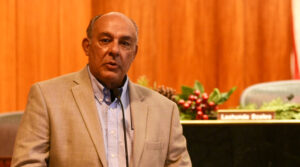Georgia audit to trigger hand recount of presidential vote
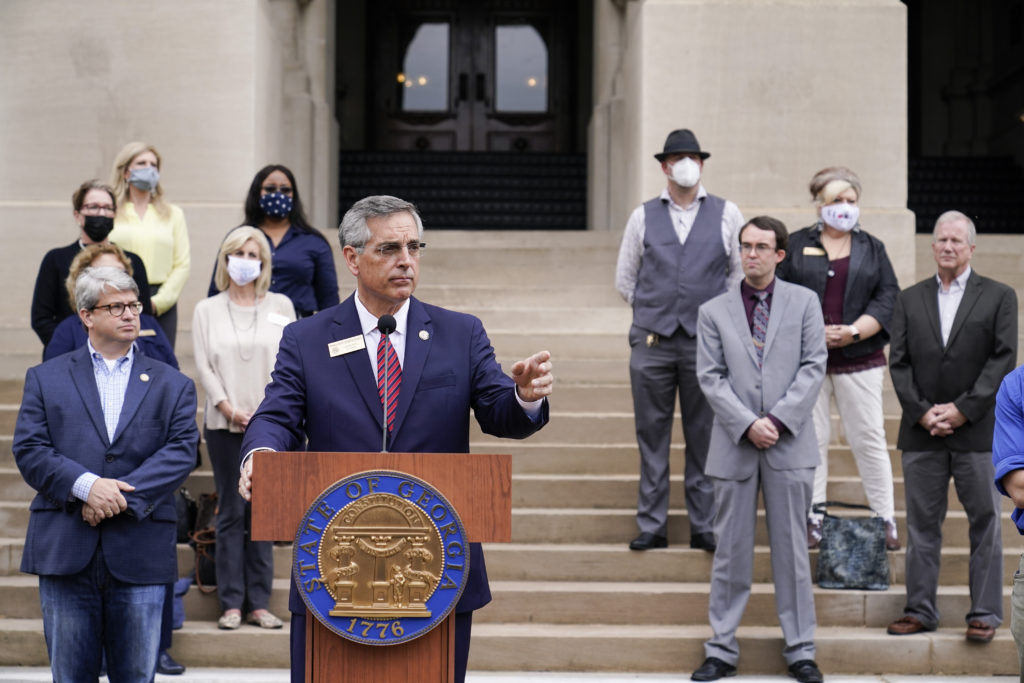
Georgia’s secretary of state on Wednesday announced an audit of presidential election results that he said will trigger a full hand recount. Secretary of State Brad Raffensperger said at a news conference that his office wants the process to begin by the end of the week and he expects it to take until Nov. 20, which is the certification deadline. President-elect Joe Biden leads President Donald Trump by about 14,000 votes out of nearly 5 million votes in the state. Nearly all ballots have been counted, though counties have until Friday to certify their results. Once county certification is complete and before the state certifies the results, the count must be audited. It is up to Raffensperger to choose which race to audit. The audit is a new requirement put in place by a law passed in 2019 that also provided for the new voting machines purchased last year. The state has chosen to do a risk-limiting audit, in which a random sample of ballots or receipts generated by voting machines are checked against results produced by vote-tallying equipment for accuracy. Raffensperger chose to audit the presidential race and said the tight margin means that the audit will result in a full hand recount. Asked if he chose the presidential race because of the Trump campaign’s call for a hand recount, Raffensperger said, “No, we’re doing this because it’s really what makes the most sense with the national significance of this race and the closeness of this race.” For the hand recount, election officers will work with the paper ballots in batches, dividing them into piles for each candidate. Then they will run the piles through machines to count the number of ballots for each candidate. The scanners will not read the data on the ballots, simply count them. Raffensperger said the process will have “plenty of oversight,” with both parties having the opportunity to observe. After results from the hand recount are certified, the losing campaign can then request another recount, which will be performed by scanners that would read and tally the votes, Raffensperger said. There is no mandatory recount law in Georgia, but state law provides that option to a trailing candidate if the margin is less than 0.5 percentage points. Biden’s lead stood at 0.28 percentage points as of Wednesday morning. U.S. Rep. Doug Collins, a Georgia Republican who’s leading Trump’s legal efforts in Georgia, called the upcoming audit a “first step.” He noted the Trump campaign had requested a hand recount. “This is a victory for integrity,” Collins said. “This is a victory for transparency.” In addition to the audit of the presidential race, Raffensperger announced that he’s consolidating runoff elections. A runoff for any state races was set to be held Dec. 1, while the runoffs for two U.S. Senate races was set for Jan. 5. Raffensperger said he’s consolidating those runoffs on Jan. 5. The one exception is the runoff for the special election to fill the remainder of U.S. Rep. John Lewis‘ term. That election will still be held Dec. 1. The person who wins that election will serve for about a month before Nikema Williams, who was just elected to succeed Lewis, who died in July. Republished with the permission of the Associated Press.
Biden works to push Black turnout in campaign’s final days
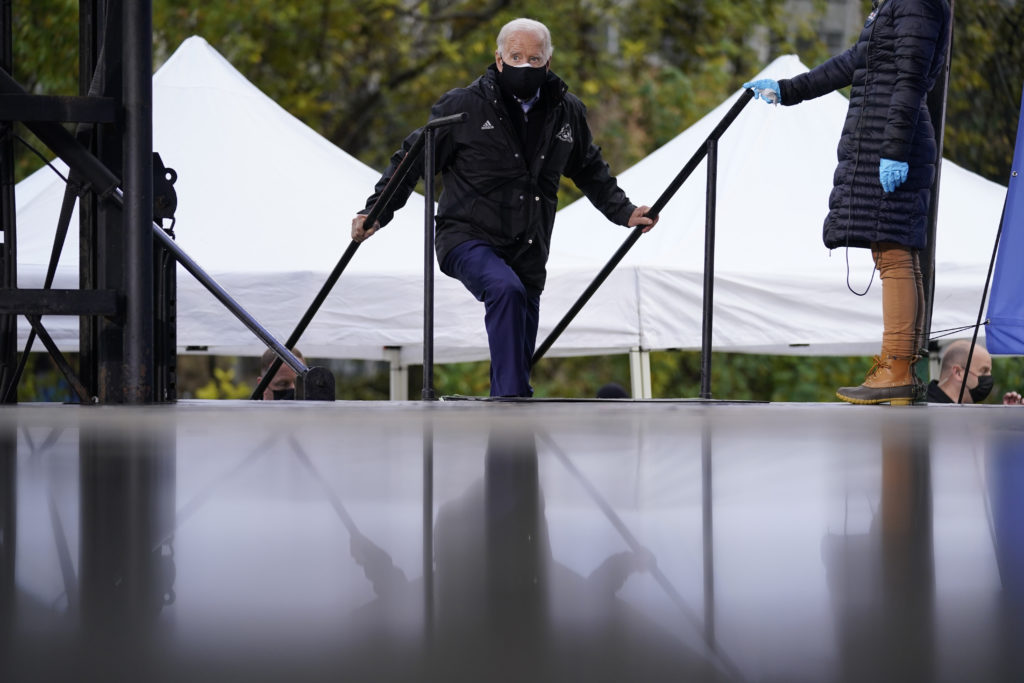
Joe Biden was spending the final days of the presidential campaign appealing to Black supporters to vote in-person during a pandemic that has disproportionally affected their communities, betting that a strong turnout will boost his chances in states that could decide the election. Biden was in Philadelphia on Sunday, the largest city in what is emerging as the most hotly contested battleground in the closing 48 hours of the campaign. He participated in a “souls to the polls” event that is part of a nationwide effort to organize Black churchgoers to vote. “Every single day we’re seeing race-based disparities in every aspect of this virus,” Biden said at the drive-in event, shouting to be heard over the blaring car horns. He declared that Trump’s handling of COVID-19 was “almost criminal” and that the pandemic was a “mass casualty event in the Black community.” His running mate, Sen. Kamala Harris, was in Georgia, a longtime Republican stronghold that Democrats believe could flip if Black voters show up in force. The first Black woman on a major party’s presidential ticket, she encouraged a racially diverse crowd in a rapidly growing Atlanta suburb to “honor the ancestors” by voting, invoking the memory of the late civil rights legend, longtime Rep. John Lewis. She later campaigned in Goldsboro and Fayetteville, North Carolina, two cities with a large share of Black voters. But even as 93 million Americans have cast ballots and election officials prepare to count, President Donald Trump was already threatening litigation to stop the tabulation of ballots arriving after Election Day. As soon as polls closed in battlegrounds such as Pennsylvania, Trump said, “we’re going in with our lawyers.” It was unclear precisely what Trump meant. There is already an appeal pending at the Supreme Court over the counting of absentee ballots in Pennsylvania that are received in the mail in the three days after the election. The state’s top court ordered the extension and the Supreme Court refused to block it, though conservative justices expressed interest in taking up the propriety of the three added days after the election. Those ballots are being kept separate in case the litigation goes forward. The issue could assume enormous importance if the late-arriving ballots could tip the outcome. Biden is focusing on turning out Black voters in the final stretch in part to avoid a narrow outcome that could prompt Trump to seek an advantage in the courts. It’s a challenging dynamic because Democrats have spent months pushing their supporters to vote by mail. But their energy has shifted to urge Black supporters who have long preferred to vote in person or distrust voting by mail to get out on Tuesday. A Biden path toward victory must include Black majority cities, including Philadelphia and Detroit, which will be crucial in determining the outcome in Pennsylvania and Michigan. Those are states where both candidates have spent a significant amount of time in the final days of the 2020 election. “The historical but also cultural reality for our community is that Election Day represents a collective political act and it’s a continuation of our struggle for full citizenship in this country,” said Adrianne Shropshire, the executive director of BlackPAC. “Black voters are showing up in ways that they did not in 2016 and we can take heart in that.” In Detroit, officials are projecting a 50% voter turnout, which would be higher than 2016, yet lower than 2008 and 2012 when Obama’s candidacy drew record voter participation. Grassroots organizers in the Philadelphia area have spent months engaging potential voters, many of whom they expect will be casting ballots for the first time on Election Day. “Most Black voters in Philly have been skeptical of mail-in voting,” said Joe Hill, a veteran Democratic operative-turned-lobbyist from the city. “A lot of us have gotten our ballots already,” Hill said, but added, “Election Day has always been everything in Philadelphia.” Healthcare Pennsylvania, a local union chapter of the Service Employees International Union, is working to increase turnout by at least 10,000 in west Philadelphia and spent the weekend knocking on more than 600 doors. West Philadelphia has a majority Black population and has experienced firsthand the convergence of the pandemic’s disproportionate impact on Black Americans and protests in recent days against police brutality, mirroring what’s occurred nationwide. Biden has also drawn a sharp contrast to Trump through a summer of unrest over the police killings of Breonna Taylor in Kentucky and George Floyd in Minneapolis. Their deaths sparked the largest protest movement since the civil rights era. Biden responded by acknowledging the systemic racism that pervades American life, while Trump emphasized his support of police and pivoted to a “law and order” message that resonated with his base but did little to broaden his appeal. Four years ago, Trump made his pitch to voters of color by bellowing “What have you got to lose?” in supporting the Republican candidate and aides have pointed to pre-pandemic economic gains by people of color. He only won 8% of the Black vote, but in a development that has haunted Democrats for four years, Clinton’s margin fell 7 percentage points from Obama’s in 2012, according to Pew Research Center. There’s little chance that Trump will win all that many more Black voters this year, though his campaign believes it has made inroads with young Black men. The president’s primary strategy has been to erode Biden’s support with a barrage of negative advertisements. One replays Biden’s eyebrow-raising “you ain’t Black” comment, in which the former vice president questioned how African Americans could support Trump. Another uses the Democrat’s own past words in support of the 1994 crime bill against him. The bill, which Biden helped write, led to stiffer prison sentences that disproportionately incarcerated Black men. Trump, in a tweet Sunday, claimed that Biden called young Black man “superpredators” — which he did not do, though he used the term “predators” in a 1993 floor speech to describe criminals. Biden, who has a
Doug Jones fights for survival in Alabama as Tommy Tuberville coasts
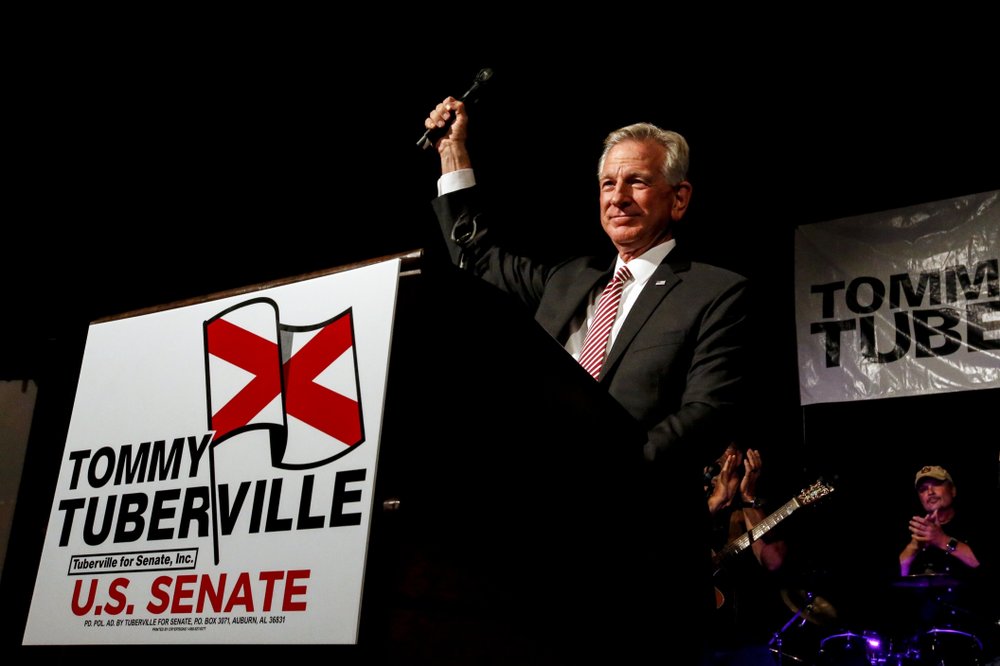
Standing by a blue pickup truck at a rally near the birthplace of the late civil rights icon John Lewis, Alabama Sen. Doug Jones urged voters to look at his record from his three years in office and not what he called Republican distortions about him. “Don’t listen to the lies. … I don’t want to defund the police. I’m not taking anybody’s guns away. I’m not for federally funded abortions,” Jones said in his closing message. “Look at the record. I’ve got a record passing bipartisan legislation, working with Republicans, working with Democrats. I’ve got a record for doing things for teachers, for farmers, for our military, for Alabama.” Considered the most endangered Democrat in the U.S. Senate, Jones is facing Republican Tommy Tuberville, who harnessed college football coaching fame and President Donald Trump’s endorsement to block former Trump Attorney General Jeff Sessions’ attempt at a political comeback. Sessions has since appeared with Tuberville on the campaign trail. The race in solidly pro-Trump Alabama will test whether Democrats can make inroads in the Deep South and if Jones’ 2017 special election win was a fluke driven by the fact that the GOP nominee, Roy Moore, faced a litany of sexual misconduct allegations. The outcome of this year’s race could also have a big effect on the Senate, which Republicans currently control 53-47. While Tuberville entered the race as a strong favorite, Jones holds a 4-to-1 spending advantage and both campaigns sent out fundraising emails contending the race is tightening. Jones has been on a campaign blitz while Tuberville has adopted a strategy akin to running out the clock. Tuberville has announced fewer public campaign events, concentrated media appearances on conservative talk radio, and has refused to debate Jones. Positioning himself as a political outsider, Tuberville’s message has been heavy on support for Trump. In a recent ad, Tuberville said, “I’m going to stand with President Trump to finish the border wall, cut your taxes, and protect life.” “Between Doug Jones and me, voters have the choice between a devoted liberal who embraces the D.C. swamp or a committed conservative outsider who wants to fundamentally change the way Washington operates,” Tuberville said in a statement. Tuberville’s record as a football coach has even become campaign fodder. The former Auburn University football coach ran an ad with a former player talking about how Tuberville cared about players as people, not just athletes. Jones, meanwhile, ran a commercial saying Tuberville “quit on his players” when he abruptly changed coaching jobs multiple times. Jones, the first Alabama Democrat elected to the Senate in a quarter-century, is trying to prove his 2017 victory was no outlier. “A lot has to go right for a Democrat in Alabama to pick the lock and win an election. Jones ran an exemplary campaign in 2017 and benefited from a perfect storm – and many of those same underlying elements are in place again,” said Zac McCrary, a Democratic pollster. To win, McCrary said Jones needs strong Black turnout and big support from independents and younger, more suburban white voters. Republican campaign strategist Angi Stalnaker said Tuberville comes in with an “incredible advantage” just by having an “R” by his name. Many Alabamians also aren’t happy that Jones voted in February to remove Trump from office, she said. “I think Senator Jones has been on the ropes since the day he was sworn in, but when he cast a vote to impeach Trump. … I think he put his nail in his own coffin,” Stalnaker said. Trump is expected to easily carry the state again, meaning Jones would have to win over some Trump voters. Jones made a direct appeal to GOP voters in ads featuring Republican voters, including retired Gen. Charles Krulak — a former commandant of the U.S. Marine Corps — endorsing Jones. “Although I am a life-long Republican, I’m urging you to vote for Doug Jones. His work on the Armed Services Committee supports our veterans and military families, and ensures that we have the best equipped military in the world,” Krulak said in the ad. Jones has tried to question Tuberville’s past financial dealings and readiness to be senator. He highlighted a recording of Tuberville appearing to struggle with a question about the Voting Rights Act. “The thing about the Voting Rights Act is, you know, there’s a lot of different things you can look at it as. Who is it going to help? What direction do we need to go with it? I think it’s important that everything we do we keep secure. We keep an eye on it. It’s run by our government,” Tuberville said, according to the recording from a rotary club meeting. Jones played Tuberville’s answer during a campaign rally in Troy. “He should be ashamed to even be on the ballot in the state of Alabama with not knowing what the Voting Rights Act is.” Collen Layton, a 23-year-old graphic design student, came to hear Jones speak that day. “It’s just kind of a no-brainer to me. He has a record of working across the aisle and can tell that he cares about the people of Alabama. And you have Tommy Tuberville, who seems like he has no clue what he is doing,” Layton said. In Hoover, 56-year-old retired field artillery officer Russ Stringer said it was a similarly easy choice to vote for Tuberville, and has been critical of Jones on social media. “I have called him out on his abortion stance and how it does not agree with most people in Alabama. I called him out on voting to remove President Trump twice,” Stringer said. There are some discouraging signs for Jones, including that national Democratic groups haven’t reported significant spending in Alabama, according to finance reports. While Democrats have made gains in southern states such as Virginia and North Carolina, the Deep South has fewer large suburban areas, and “has been more sluggish for Democrats,” McCrary said. But if Jones does win, McCrary said it would cement the possibility that
Troy University names building for civil rights icon John Lewis
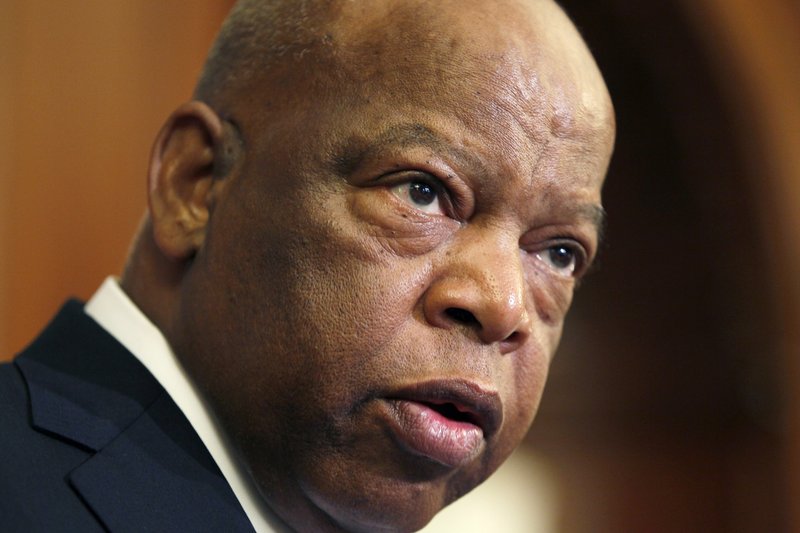
The Troy University Board of Trustees voted Wednesday to rename historic Bibb Graves Hall — currently named for a former governor who had ties to the Ku Klux Klan— in honor of Lewis.
Barack Obama, in scathing Donald Trump rebuke, warns democracy on the line
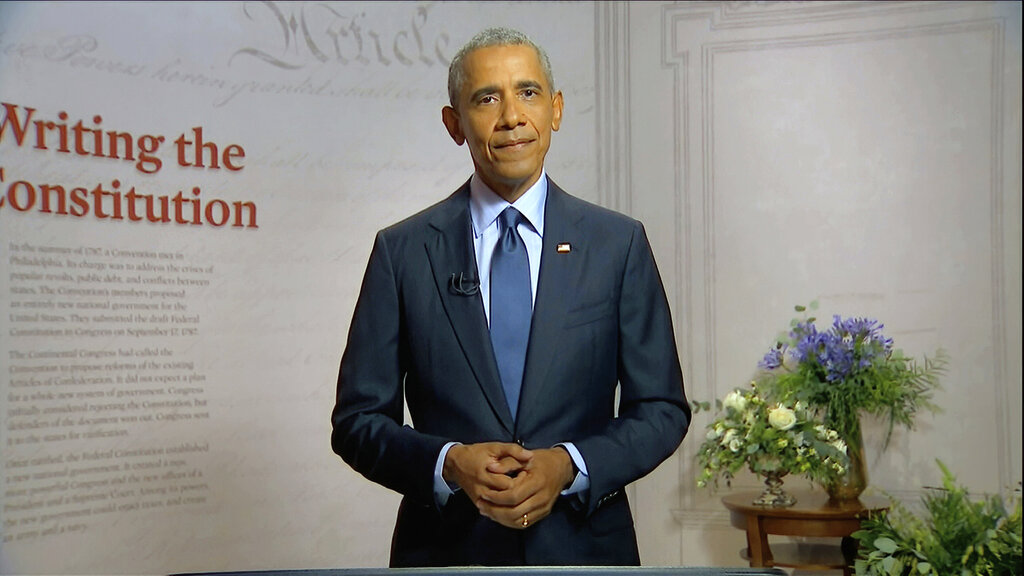
Even in the heat of campaigns, former presidents are typically more restrained than other politicians in their criticisms of a sitting president.
State Rep. Will Dismukes facing theft charges from former workplace
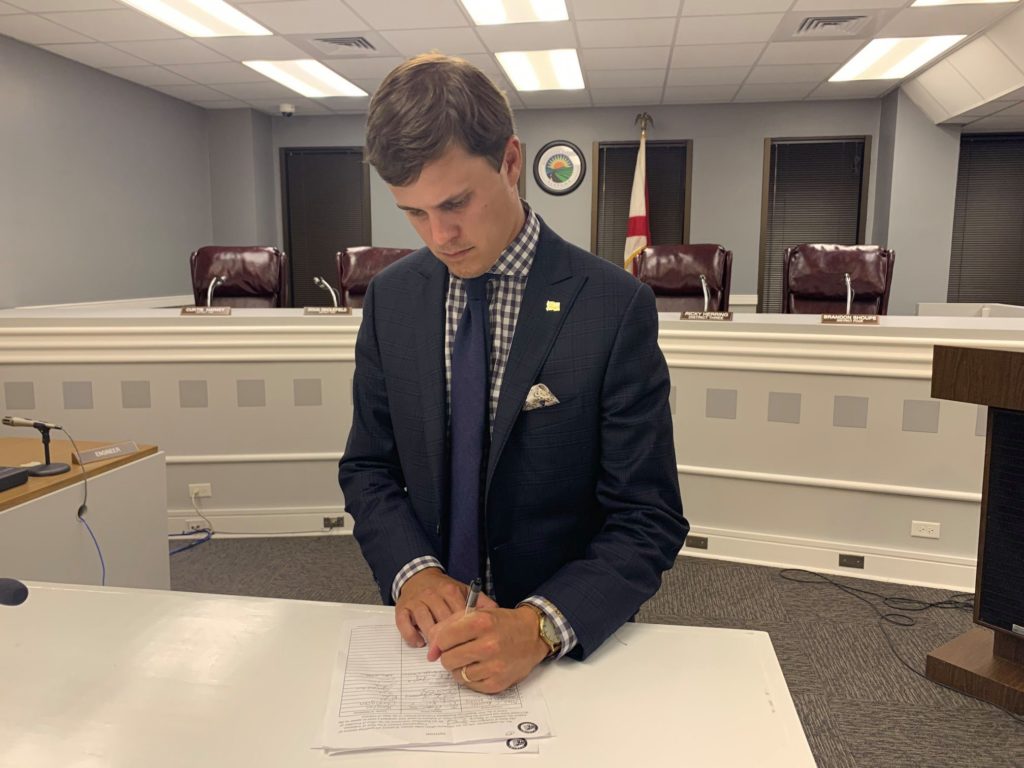
Dismukes has recently faced sharp criticism, including a call to resign, for participating in a celebration marking the birthday of a Confederate general who was also an early Ku Klux Klan leader.
Will Dismukes resigns as pastor after celebrating KKK leader

Rep. Will Dismukes resigned as pastor of Pleasant Hill Baptist Church in Prattville.
Chris Elliott: There’s still work to be done

Chris Elliott takes issue with Will Dismukes’ controversial Facebook post from earlier this week.
John Lewis mourned as ‘founding father’ of better America
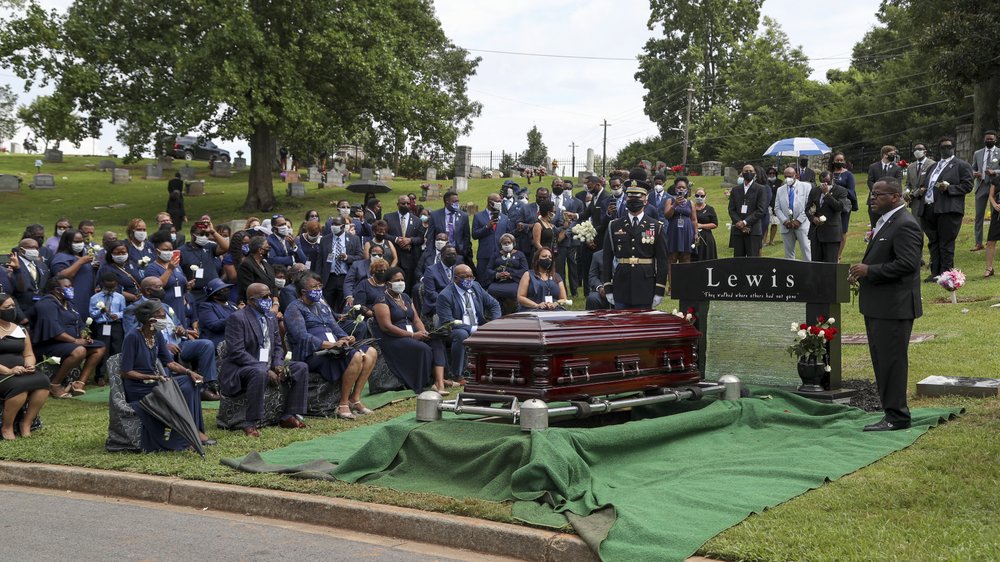
Former President Barack Obama called Lewis “a man of pure joy and unbreakable perseverance” during a fiery eulogy that was both deeply personal and political.
Donald Trump floats idea of election delay, a virtual impossibility
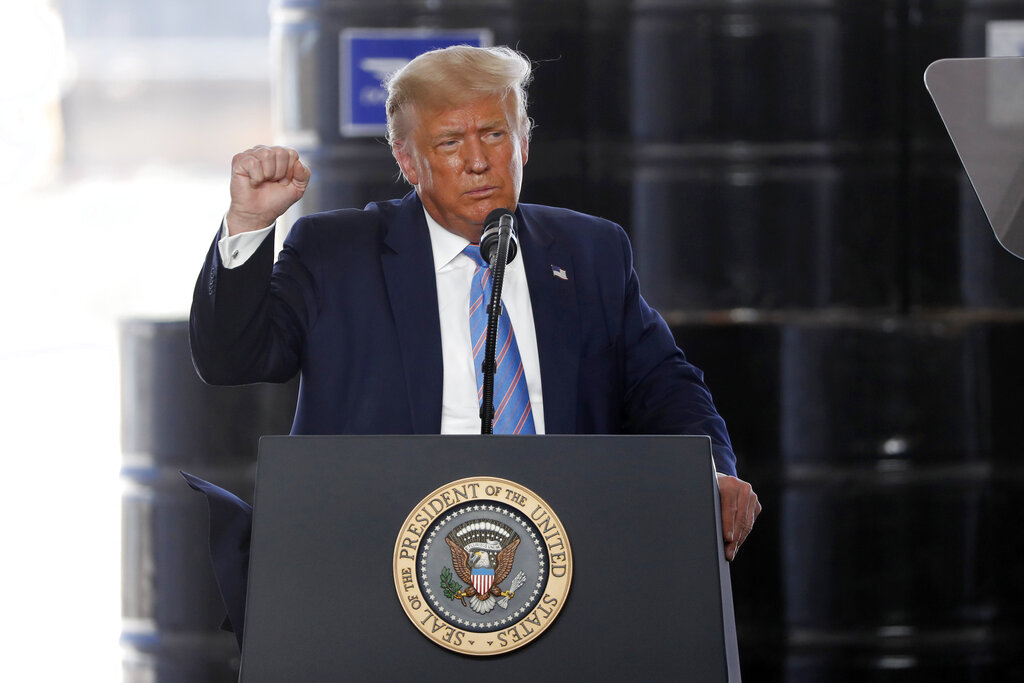
The date of the presidential election is enshrined in federal law and would require an act of Congress to change.
Civil rights icon Rep. John Lewis lies in state at Capitol
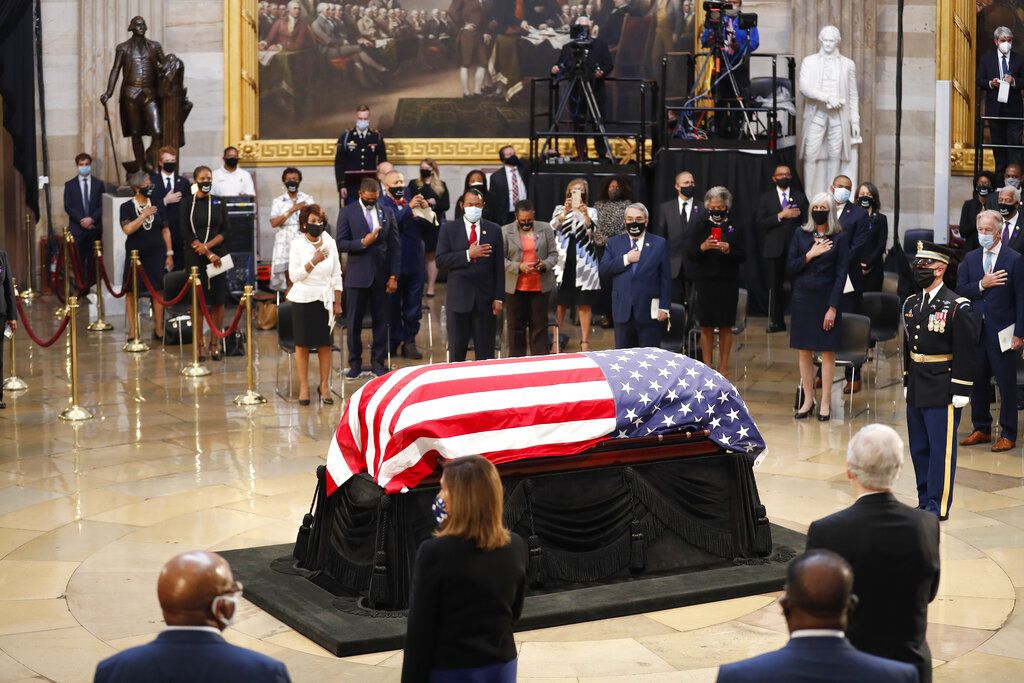
In a solemn display of bipartisan unity, congressional leaders praised Democratic Rep. John Lewis as a moral force for the nation on Monday in a Capitol Rotunda memorial service rich with symbolism and punctuated by the booming, recorded voice of the late civil rights icon. House Speaker Nancy Pelosi called Lewis the “conscience of the Congress” who was “revered and beloved on both sides of the aisle, on both sides of the Capitol.” Senate Majority Leader Mitch McConnell praised the longtime Georgia congressman as a model of courage and a “peacemaker.” “The arc of the moral universe is long, but it bends toward justice,” McConnell, a Republican, said, quoting the Rev. Martin Luther King Jr. “But that is never automatic. History only bent toward what’s right because people like John paid the price.” Lewis died July 17 at the age of 80. Born to sharecroppers during Jim Crow segregation, he was beaten by Alabama state troopers during the civil rights movement, spoke ahead of King’s “I Have a Dream” speech at the 1963 March on Washington and was awarded the Medal of Freedom by the nation’s first Black president in 2011. Dozens of lawmakers looked on Monday as Lewis’ flag-draped casket sat atop the catafalque built for President Abraham Lincoln. Several wiped away tears as the late congressman’s voice echoed off the marble and gilded walls. Lewis was the first Black lawmaker to lie in state in the Rotunda. “You must find a way to get in the way. You must find a way to get in trouble, good trouble, necessary trouble,” Lewis intoned in a recorded commencement address he’d delivered in his hometown of Atlanta. “Use what you have … to help make our country and make our world a better place, where no one will be left out or left behind. … It is your time.” Members of the Congressional Black Caucus wore masks with the message “Good Trouble,” a nod to Lewis’ signature advice and the COVID-19 pandemic that has made for unusual funeral arrangements. The ceremony was the latest in a series of public remembrances. Pelosi, who counted Lewis as a close friend, met his casket earlier Monday at Joint Base Andrews in Maryland, and Lewis’ motorcade stopped at Black Lives Matter Plaza near the White House as it wound through Washington before arriving at the Capitol. The Democratic speaker noted that Lewis, frail with cancer, had come to the newly painted plaza weeks ago to stand “in solidarity” amid nationwide protests against systemic racism and police brutality. She called the image of Lewis “an iconic picture of justice” and juxtaposed it with another image that seared Lewis into the national memory. In that frame, “an iconic picture of injustice,” Pelosi said, Lewis is collapsed and bleeding near the Edmund Pettus Bridge in Selma, Alabama, on March 7, 1965, when state troopers beat him and other Black Americans as they demanded voting rights. Following the Rotunda service, Lewis’ body was moved to the steps on the Capitol’s east side in public view, an unusual sequence required because the pandemic has closed the Capitol to visitors. Late into the night, a long line of visitors formed outside the Capitol as members of the public quietly, and with appropriate socially distant spacing, came to pay their respects to Lewis. Presumptive Democratic presidential nominee Joe Biden paid his respects late Monday afternoon. The pair became friends over their two decades on Capitol Hill together and Biden’s two terms as vice president to President Barack Obama, who awarded Lewis the Presidential Medal of Freedom in 2011. Notably absent from the ceremonies was President Donald Trump. Lewis once called Trump an illegitimate president and chided him for stoking racial discord. Trump countered by blasting Lewis’ Atlanta district as “crime-infested.” Trump said Monday that he would not go to the Capitol, but Vice President Mike Pence and his wife paid their respects. Just ahead of the ceremonies, the House passed a bill to establish a new federal commission to study conditions that affect Black men and boys. Born near Troy, Alabama, Lewis was among the original Freedom Riders, young activists who boarded commercial passenger buses and traveled through the segregated Jim Crow South in the early 1960s. They were assaulted and battered at many stops, by citizens and authorities alike. Lewis was the youngest and last-living of those who spoke on the steps of the Lincoln Memorial at the March on Washington. The Bloody Sunday events in Selma two years later forged much of Lewis’ public identity. He was at the head of hundreds of civil rights protesters who attempted to march from the Black Belt city to the Alabama Capitol in Montgomery. The marchers completed the journey weeks later under the protection of federal authorities, but then-Alabama Gov. George C. Wallace, an outspoken segregationist at the time, refused to meet the marchers when they arrived at the Capitol. President Lyndon Johnson signed the Voting Rights Act of 1965 on Aug. 6 of that year. Lewis spoke of those critical months for the rest of his life as he championed voting rights as the foundation of democracy, and he returned to Selma many times for commemorations at the site where authorities had brutalized him and others. “The vote is precious. It is almost sacred,” he said again and again. “It is the most powerful nonviolent tool we have in a democracy.” The Supreme Court scaled back the seminal voting law in 2012; an overhauled version remains bottle-necked on Capitol Hill, with Democrats pushing a draft that McConnell and most of his fellow Republicans oppose. The new version would carry Lewis’ name. Lewis crossed the Edmund Pettus Bridge for the last time Sunday on a horse-drawn carriage before an automobile hearse transported him to the Alabama Capitol, where he lay in repose. He was escorted by Alabama state troopers, this time with Black officers in their ranks, and his casket stood down the hall from the office where Wallace had peered out of
Lawmaker criticized for honoring Confederate, KKK figure

An Alabama lawmaker is facing sharp criticism, including a call to resign, for participating in a celebration marking the birthday of a Confederate general who was also an early Ku Klux Klan leader. Rep. Will Dismukes of Prattville on Sunday attended a gathering to remember Nathan Bedford Forrest and posted a photo from the event on his Facebook page. The photo showed Dismukes speaking in front of several Confederate flags. “Had a great time at Fort Dixie speaking and giving the invocation for Nathan Bedford Forrest annual birthday celebration. Always a great time and some sure enough good eating!!” the Republican state House member wrote in a post that is no longer visible on his public page. The post came on the same day that the state was honoring the late John Lewis, an Alabama native who served for decades in Congress and had a long record of fighting for civil rights. Lewis died July 17 at the age of 80. Dismukes – who is a chaplain of a chapter of the Sons of Confederate Veterans – later posted that it was not his intent to disrespect Lewis or glorify the Klan. The lawmaker was condemned by both Democrats and Republicans. Wade Perry, executive director of the Alabama Democratic Party, called on Dismukes to resign. “Will Dismukes has demonstrated yet again why he is unfit to hold public office. Americans don’t celebrate racists or traitors. Nathan Bedford Forrest was both. And a founder of the Klan. … It’s 2020 and it’s time for racial extremists like Will Dismukes to go away,” Perry said in a statement. The Republican House whip later tweeted a statement that, while not naming his Republican colleague, said he could not fathom celebrating a Klan leader. “I cannot fathom why anyone in 2020 celebrates the birthday of the 1st KKK Grand Wizard. And while the body of a civil rights icon beaten by the Klan lies at state Capitol being honored by GOP/Dem leaders from all over the state. This mentality does not rep my party or my faith,” Rep. Danny Garrett tweeted. Dismukes posted a lengthy statement Monday, saying, “my post was in no way glorifying the Klan or disrespecting the late Rep. John Lewis.” He said his regret was that it put a negative light on his legislative colleagues. “I am a transparent person. To the point that as a public official I lay it all there for the people to see for better or for worse at times. The post was in no way intended to seem as if I was glorifying the Klan or any party thereof. The very atrocities and actions they committed are a disgrace to our country,” Dismukes said. Alabama Republican Party Chairman Terry Lathan called Dismukes explanation “shallow in understanding” about why it was offensive to many. “Rep. Dismukes offered no explanation for why he participated in a birthday celebration of Nathan Bedford Forrest. Additionally, I find his statement to be shallow in understanding why his activities are deeply offensive to so many Alabamians. His constituents will be the final decision makers of his political future,” Lathan said. “It is one thing to honor one’s Southern heritage, however, it is completely another issue to specifically commemorate the leader of an organization with an indisputable history of unconscionable actions and atrocities toward African Americans,” Lathan said. Republished with the permission of the Associated Press.

